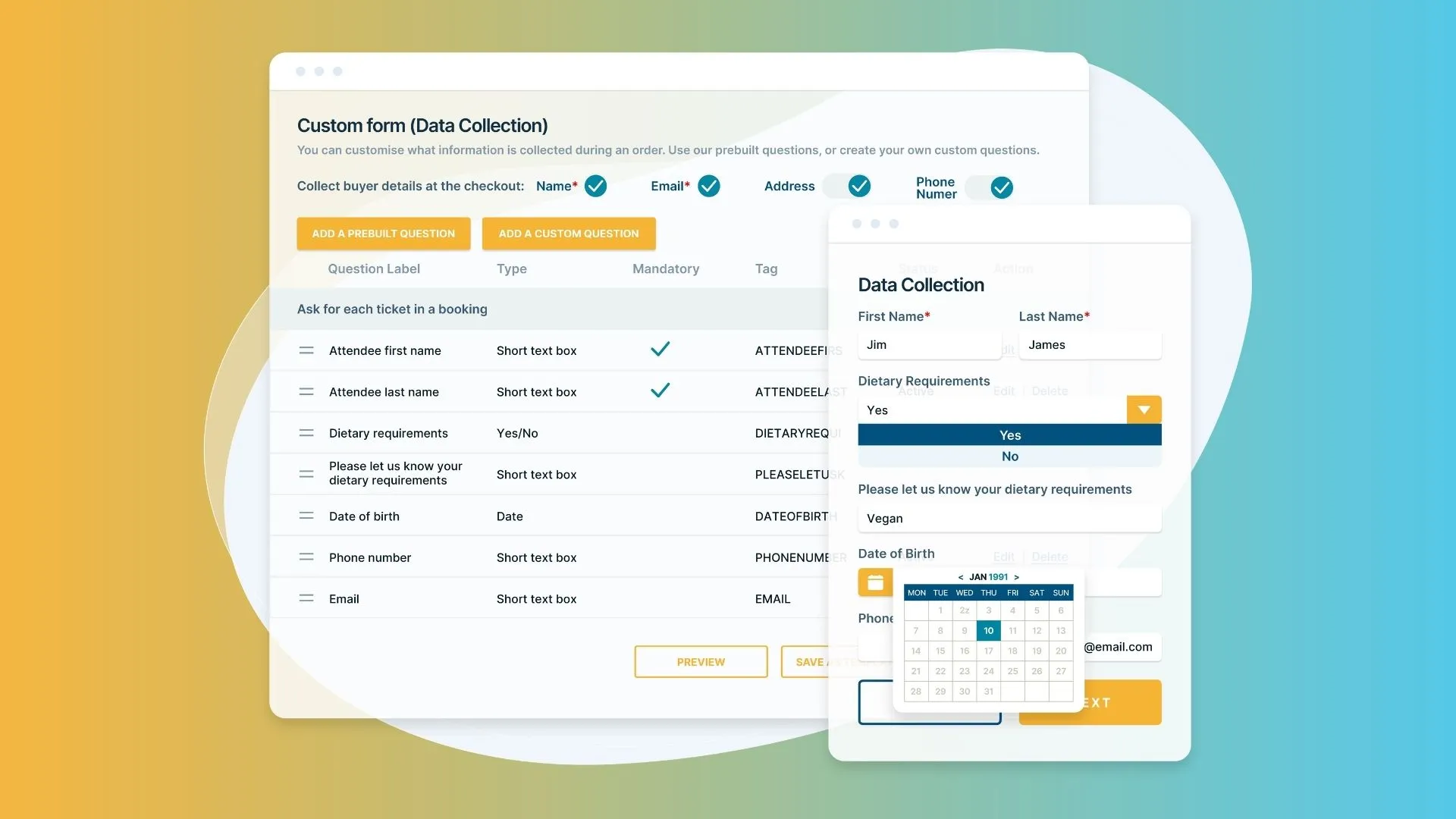How To Plan A Successful School Event
Imagine this scenario, you’ve been handed the responsibility of organising your school’s annual talent show.
Excitement builds as the big day approaches, but so does the stress.
Coordinating schedules, managing volunteers, setting up venues, and keeping everything within budget feels like an insurmountable task.
You’re not alone, many educators and school administrators face this challenge.
School events, whether they’re fundraisers, performances, or sports days, are more than just activities on the calendar.
They serve as a cornerstone for fostering community spirit, encouraging student participation, and creating cherished memories that last a lifetime.
These events offer an opportunity for parents, teachers, and students to connect in meaningful ways, strengthening the bond between home and school.
But here’s the catch, planning a successful school event is no easy feat.
Without proper organisation, even the most exciting event can turn into a logistical nightmare.
From budget constraints to time management and volunteer coordination, the challenges can quickly pile up.
The good news is that with careful planning and the right tools, these obstacles can be overcome.
Let’s explore a step-by-step guide to ensure your school event is a resounding success.
Each Step Towards A Successful School Event
- 1. Define Your Goals and Objectives
- 2. Assemble Your Resources and Helpers
- 3. Create a Detailed Budget
- 4. Choose the Right Date, Time, and Venue
- 5. Plan the Event Activities
- 6. Promote Your Event
- 7. Coordinate Volunteers and Staff
- 8. Final Preparations and Execution
- 9. Post-Event Wrap-Up
Step 1: Define Your Goals and Objectives
The first step in planning any event is defining its purpose. A clear understanding of your goals will guide your decisions and keep you focused.
- What is the purpose? Are you raising funds for a new library, celebrating student achievements, or encouraging community involvement? Knowing the purpose will help you design an event that aligns with your school’s needs.
- Engage stakeholders. Collaboration is key. Involve teachers, parents, and even students in brainstorming and goal-setting. Their input can offer diverse perspectives and ensure the event resonates with the community.
- Set measurable goals. How will you define success? It could be the amount of money raised, attendance numbers, or feedback from participants. Setting specific, measurable objectives will help you track progress and identify areas for improvement.
Clear goals and objectives serve as the foundation for a successful event, guiding every decision from planning to execution.
Step 2: Assemble Your Resources and Helpers
Successful events rely on a strong team and well-utilised resources.
- Recruit volunteers. Reach out to teachers, parents, and older students to build a team of helpers. Highlight how their involvement contributes to the event’s success and make the experience rewarding by acknowledging their efforts.
- Assign roles based on strengths. Play to your team’s strengths. For example, assign creative parents to handle decorations and tech-savvy volunteers to manage online ticketing or AV equipment.
- Leverage school resources. Use school facilities, existing supplies, and community connections to minimise costs. Local businesses may also be willing to donate goods or services in exchange for sponsorship recognition.
With the right team and resources in place, you’ll reduce your workload and ensure every aspect of the event is covered.
Step 3: Create a Detailed Budget
A well-planned budget is essential for avoiding financial pitfalls.
- Itemise expenses. Common costs include venue rental, catering, decorations, and equipment hire. Make a detailed list of all potential expenses to avoid surprises.
- Allocate a contingency fund. Events often come with unexpected costs, like last-minute supplies or technical glitches. Set aside a portion of your budget for these contingencies.
- Explore funding opportunities. Seek sponsorships from local businesses, apply for grants, or organise pre-event fundraisers to cover costs. These efforts can significantly ease the financial burden.
A clear and realistic budget keeps your event on track financially and helps you make informed decisions.
Step 4: Choose the Right Date, Time, and Venue
Timing and location are crucial for maximising attendance and ensuring the event runs smoothly.
- Pick the right date. Avoid scheduling conflicts with holidays, exam periods, or other community events. A weekday evening or weekend often works well for school events. When it comes to going live with booking for the event online, ensure the time doesn’t conflict with school drop off or school pick up.
- Secure a suitable venue. Whether you’re hosting on school grounds or at an external location, ensure the venue is accessible, accommodates your audience size, and meets your technical needs.
- Confirm early. Popular venues and suppliers can book up quickly, so secure your reservations well in advance to avoid disappointment.
Choosing the right date and venue ensures that your event is convenient and appealing to your audience.
Step 5: Plan the Event Activities
The activities you offer will determine the success and enjoyment of your event.
- Offer diverse options. Include a mix of activities that cater to different interests, such as games, performances, workshops, or sports. This ensures broad appeal and higher engagement.
- Create an inclusive schedule. Plan activities that involve students of all abilities and backgrounds. Consider offering alternatives for those who may not wish to participate in certain activities.
- Focus on quality. Rather than cramming too much into the event, prioritise a few well-organised and engaging activities.
Thoughtful activity planning keeps attendees entertained and ensures the event feels cohesive and enjoyable.
Step 6: Promote Your Event
Even the best-planned event needs effective promotion to succeed.
- Use multiple channels. Combine traditional methods like posters and newsletters with digital tools such as social media, email campaigns, and your school’s website.
- Simplify ticketing. Platforms like TryBooking allow you to manage ticket sales online, making it easy for attendees to book and pay. You can also use custom forms for registrations or to collect important information, ensuring a seamless process for both organisers and participants.
- Build excitement. Share teasers, behind-the-scenes updates, and countdowns to generate anticipation in the lead-up to your event.
Strong promotion ensures your event reaches its target audience and attracts the desired turnout.
Step 7: Coordinate Volunteers and Staff
Managing your team effectively is crucial for smooth event execution.
- Start early. Recruit volunteers and staff well in advance to allow time for training and preparation.
- Communicate clearly. Provide detailed instructions and timelines to ensure everyone knows their responsibilities.
- Stay connected. Use group chats, emails, or apps to keep your team updated and address any concerns promptly.
Good coordination ensures that everyone works together seamlessly on the day of the event.
Step 8: Final Preparations and Execution
As the event approaches, attention to detail becomes critical.
- Double-check arrangements. Confirm all bookings, test equipment, and finalise attendee lists.
- Stay organised. Use a checklist to ensure no task is overlooked. Download our comprehensive School Event Checklist to stay on track.
- Prepare for the unexpected. Have contingency plans in place for potential issues, like weather changes or technical difficulties.
With thorough preparation, you’ll be ready to handle the event day confidently and effectively.
Step 9: Post-Event Wrap-Up
After the event, take the time to reflect and celebrate your success.
- Thank your team. Show appreciation to volunteers, sponsors, and attendees through thank-you notes or shout-outs.
- Gather feedback. Use surveys or casual conversations to collect insights on what worked and what could be improved.
- Document lessons learned. Keep detailed notes to streamline the planning process for future events.
A well-executed wrap-up ensures that your efforts are recognised and sets the stage for even better events in the future.
A Real-Life Example
Lincoln High School, located just outside Christchurch City, New Zealand, has revolutionised how it manages and promotes its theatrical events by using TryBooking.
Known for its vibrant drama department, the school’s productions involve students in Years 11, 12, and 13, both as part of the curriculum and extracurricular activities.
Lincoln High School, transitioned from manually managing productions to a streamlined digital solution. Using TryBooking, the platform quickly proved its value. “The system and layout are really user-friendly,” The Head of Drama explains.
“The TryBooking support team has been incredibly helpful, offering personal responses and great tips to make our events work better.”
One of the biggest benefits of adopting TryBooking has been empowering parents and simplifying the ticketing process. Instead of relying on office hours to sell tickets, Lincoln High School now directs parents to their event webpage, where tickets can be booked at any time.
“Parents love the flexibility of booking online,” The Head of Drama notes. “They no longer have to arrive early to secure their seats. They can book in advance and show up.”
This streamlined process allowed the drama teachers to focus on delivering an engaging theatre experience. Read more about Lincoln High School success story here.
Set Up for Success
Planning a school event can feel overwhelming, but with the right strategies and tools, it’s entirely achievable.
By defining clear goals, assembling a strong team, and leveraging tools like TryBooking, you can simplify the process and create memorable experiences for your school community.
Thousands of schools already trust TryBooking to manage their events effortlessly. Ready to join them? Explore the platform today and take the first step toward planning your most successful event yet.
What’s your next school event idea?

How to Guide: Organise Your Comedy Show With TryBooking
Mar 12, 2025 · 1 min read
8 Event Ideas To Celebrate Easter In 2025
Jan 31, 2024 · 1 min read
You might also like

How to Guide: Take Payments For A Bake Sale With TryBooking
Mar 05, 2025 · 1 min read
Introducing TryBooking Box Office App Tap to Pay on Phone
Apr 01, 2024 · 1 min read
How To Market Your Event
Jan 15, 2024 · 1 min read
How To Run An Event In 2024 - Everything You Need To Know
Jan 03, 2024 · 1 min read
How to boost your branded event page
Sep 29, 2023 · 1 min read
125 Unique & Fun Event Ideas For Your Next Event
Mar 20, 2023 · 1 min read
How to Create an Event Program
Mar 13, 2023 · 1 min read
10 Corporate Event Ideas To Ignite Some Fun At Your Office Party
Mar 17, 2023 · 1 min read
5 Ways To Spruce Up Your Event
Sep 27, 2022 · 1 min read
How to Plan a High School Reunion
Apr 05, 2023 · 4 min read
Yoga Classes Come In Many Forms 🧘♂️
Mar 11, 2022 · 1 min read
How to customise your Homepage?
Aug 20, 2020 · 1 min read
How to Create the Perfect Registration Form Template?
May 11, 2023 · 1 min read
Small business events; Planning, Budgeting, Promoting and Action!
Apr 11, 2017 · 1 min read
How to email your ticket buyers?
Apr 10, 2017 · 1 min read
Why event insurance is important
Apr 04, 2017 · 2 min read
How to plan a successful conference or business event?
Oct 13, 2016 · 4 min read
Learn how schools are using TryBooking to manage events
Feb 23, 2016 · 3 min read
How sporting clubs use TryBooking?
Feb 16, 2016 · 2 min read
The facts about online ticketing that make the difference
Jan 21, 2016 · 2 min read
What else can you use TryBooking for?
Dec 15, 2015 · 2 min read






